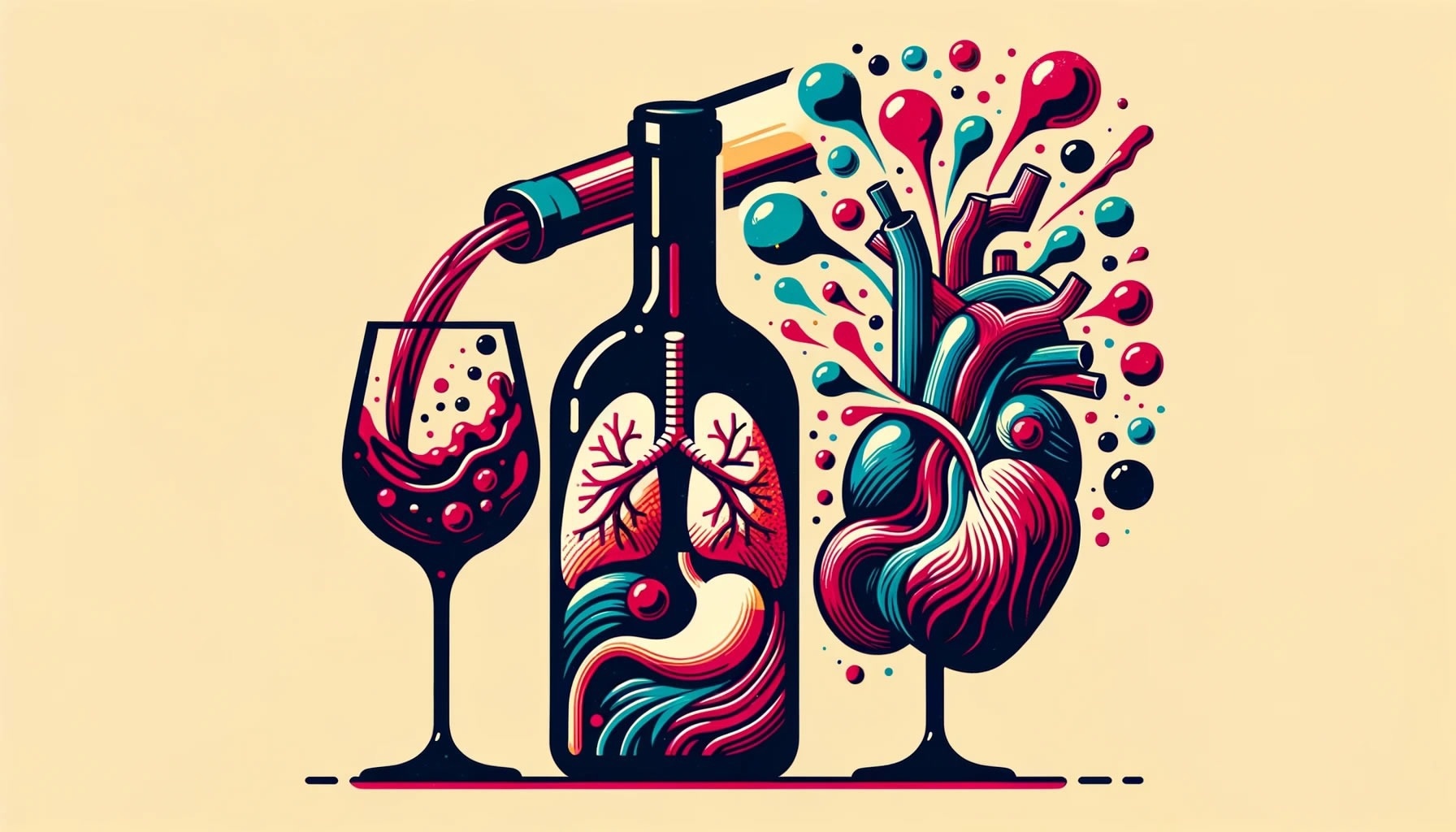Cancer is one of the leading causes of morbidity and mortality worldwide. Smoking, alcohol use, tobacco intake, and a high body mass index (BMI) are the critical risk factors determining the total burden of cancer. Interestingly, while alcohol consumption has been linked to an increased risk of developing various cancers (including those of the head, neck, upper gastrointestinal tract, breast, liver, rectum, and colon), wine consumption in moderate quantities has demonstrated opposing effects. The current understanding of alcohol intake and cancer remains contentious, particularly concerning wine consumption, warranting further research.
In the present meta-analysis, researchers investigated whether wine consumption can increase cancer risk.

Study: Association between wine consumption and cancer: a systematic review and meta-analysis. Image Credit: DALL·E 3
Data Pool and Inclusion Criteria
The Cochrane, Scopus, Web of Science, and MEDLINE (PubMed) databases were searched from their inception through to December 12, 2022, for relevant records without publication date limitations. Additionally, the team screened references from previously conducted qualitative (systematic reviews) and quantitative (meta-analyses) research. Only longitudinal studies evaluating the link between wine intake and cancers of the upper gastrointestinal tract, kidneys, colon, rectum, skin, pancreas, brain, lungs, and gynecological tissues were included.
The team excluded reviews, editorials, ecological studies, case reports, studies not published in Spanish or English, and those with no separate wine intake documentation among different alcohol types. Two reviewers performed study selection, bias risk assessments, and data extraction, and discrepancies were solved by discussion or consulting a third reviewer. Bias risks were evaluated using the Newcastle-Ottawa Scale (NOS).
The team used the DerSimonian and Laird methods to determine the pooled relative risks (RRs). The I2 and τ2 statistics were utilized to evaluate inconsistency and heterogeneity, respectively. A five-year follow-up was determined as the eligibility criteria for the included studies for quantitative research to ensure data quality.
The team performed a sensitivity assessment by eliminating studies one at a time from the primary analysis. In addition, they performed continent-wise subgroup analyses. They also performed random effects-type meta-regressions to evaluate the impact of participants’ age, female proportion, and follow-up durations on the link between wine intake and cancer risk. Egger’s regression asymmetries were assessed to determine publication bias.
What the Data Reveals
The literature search yielded 12,651 studies; the title and abstract review excluded 8,380, and 377 were assessed for eligibility. Finally, 73 studies were included in the systematic review. In total, 31 studies were cohort studies, and 42 were case-control studies.
Study settings in the included records included the United States (US), Australia, New Zealand, Greece, Canada, Uruguay, Argentina, the Netherlands, Italy, Denmark, Hawaii, the United Kingdom (UK), Puerto Rico, France, Germany, Spain, Norway, and Sweden. The publication period of the included studies ranged from 1986 to 2021, and the studies included 4,346,504 individuals 18 to 103 years of age.
The NOS scores of the included studies ranged between seven and nine, indicating high quality. The pooled relative risks for the impact of wine intake on the risk of gynecological, colorectal, renal, breast, and ovarian tumors were 1.0, 0.9, 0.9, 1.0, and 1.0, respectively. The heterogeneity in the included studies was more than 50% to 75%.
Publication bias was reported for ovarian and renal tumors. Sensitivity and subgroup analyses yielded similar findings, indicating that the primary analysis results were robust. Follow-up durations impacted pooled RRs for the link between wine intake and tumors of the kidneys, rectum, and colon. The inverse associations between wine intake and specific cancers could be due to wine components such as phytoestrogens and antioxidants.
The Biochemistry Behind Wine's Effects
It has been established that alcohol is associated with gastric cancer, but the association has been claimed to be lessened among individuals who drink wine instead of other alcoholic beverages. Wine can raise stomach acidity, which may inhibit the development of microorganisms such as Helicobacter pylori. In earlier investigations, wine was shown to have neuroprotective benefits when ingested in small amounts.
Wine components, including resveratrol, exert anti-mutagenic, anti-inflammatory, and antioxidant effects in carcinogenesis, with anti-inflammatory effects lasting during the acute as well as chronic stages of inflammation. Furthermore, by causing cyclooxygenase 1 (COX1) suppression, resveratrol can impede the cellular processes of tumor genesis, development, and progression. Other anticarcinogenic components include quercetin, tannins, and anthocyanins, which protect against UV radiation and inhibit free radicals and myeloperoxidase (MPO) and cyclooxygenase-2 (COX-2) enzymatic activity, reducing skin cancer growth.
Conclusions
Overall, the study findings showed no link between wine intake and cancer risk. On the contrary, wine consumption showed protective trends concerning the risk of tumor development, especially in the brain, lungs, skin, and pancreas. However, wine intake was not uniformly defined across studies; the selected studies had different methodologies and did not document wine consumption volumes. Further research documenting alcohol intake in similar units, considering potential confounders such as diet, lifestyle, and socioeconomic status with low heterogeneity, is required to determine the true impact of wine consumption in diverse populations.